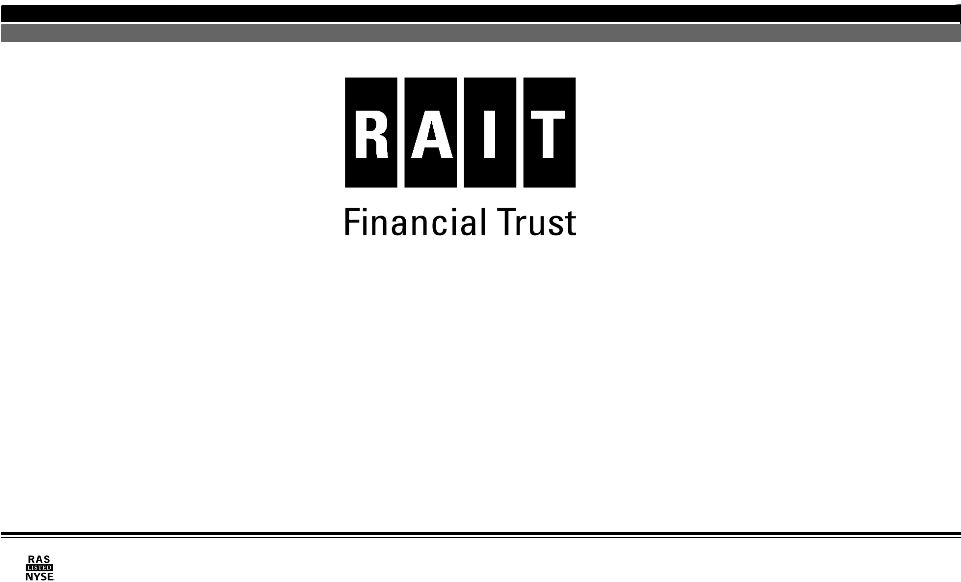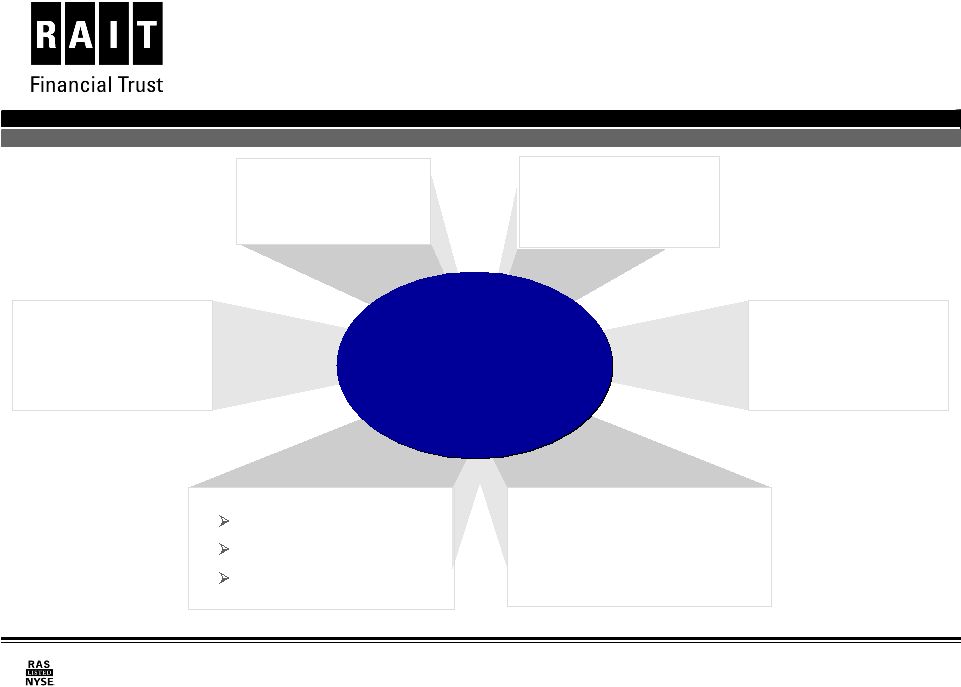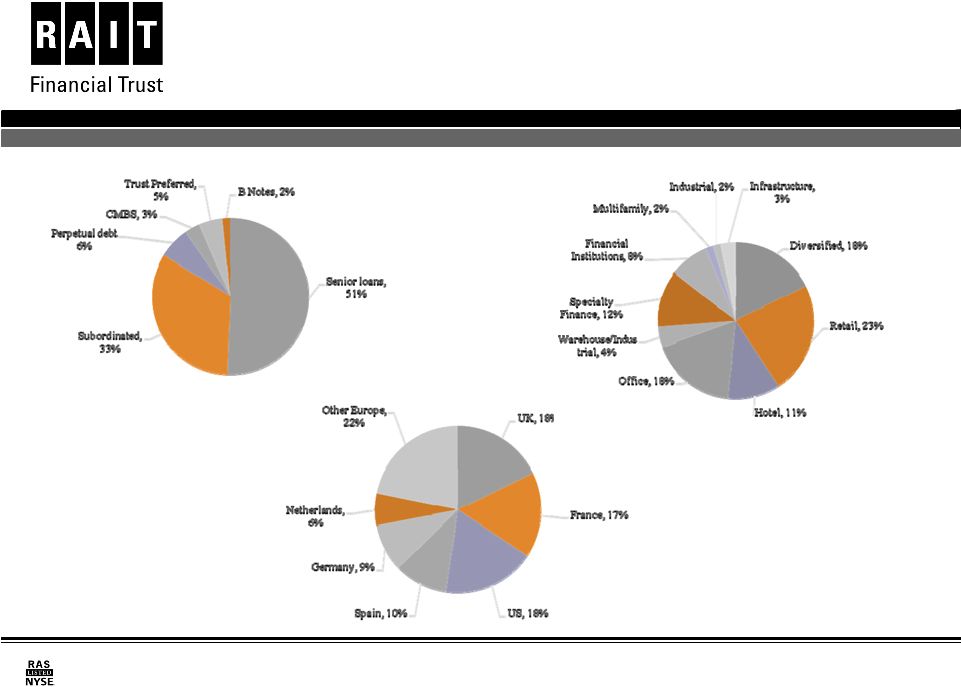19 www.raitft.com www.raitft.com Performance Measures – Adjusted Earnings (Continued) (1) We measure our performance using adjusted earnings in addition to net income (loss). Adjusted earnings represents net income (loss) available to common shares, computed in accordance with GAAP, before depreciation, amortization of intangible assets, provision for losses, changes in fair value of financial instruments, net of minority interests, unrealized (gains) losses on hedges, asset impairments, net of minority interests, capital gains (losses), net gain on deconsolidation of VIEs, share-based compensation, write-off of unamortized deferred financing fees, deferred fee revenue and our deferred tax provisions. These items are recorded in accordance with GAAP and are typically non-cash items that do not impact our operating performance or dividend paying ability. Management views adjusted earnings as a useful and appropriate supplement to GAAP net income (loss) because it helps us evaluate our performance without the effects of certain GAAP adjustments that may not have a direct financial impact on our current operating performance and our dividend paying ability. We use adjusted earnings to evaluate the performance of our investment portfolios, our ability to generate fees, our ability to manage our expenses and our dividend paying ability before the impact of non-cash adjustments recorded in accordance with GAAP. We believe this is a useful performance measure for investors to evaluate these aspects of our business as well. The most significant adjustments we exclude in determining adjusted earnings are amortization of intangible assets, provision for losses, changes in fair value of financial instruments, asset impairments, capital gains (losses) and share-based compensation. Management excludes all such items from its calculation of adjusted earnings because these items are not charges or losses which would impact our current operating performance or dividend paying ability. By excluding these significant items, adjusted earnings reduces an investor’s understanding of our operating performance by excluding: (i) management’s expectation of possible losses from our investment portfolio or non-performing assets that may impact future operating performance or dividend paying ability, (ii) the allocation of non-cash costs of generating fee revenue during the periods in which we are receiving such revenue, and (iii) share based compensation required to retain and incentivize our management team. Adjusted earnings, as a non-GAAP financial measurement, does not purport to be an alternative to net income (loss) determined in accordance with GAAP, or a measure of operating performance or cash flows from operating activities determined in accordance with GAAP as a measure of liquidity. Instead, adjusted earnings should be reviewed in connection with net income (loss) and cash flows from operating, investing and financing activities in our consolidated financial statements to help analyze management’s expectation of potential future losses from our investment portfolio and other non cash matters that impact our financial results. Adjusted earnings and other supplemental performance measures are defined in various ways throughout the REIT industry. Investors should consider these differences when comparing our adjusted earnings to these other REITs. During the three-months ended March 31, 2008, we revised our definition of adjusted earnings to exclude capital gains (losses). Capital gains (losses), while economic losses, do not currently impact operating performance or dividend paying ability. This revision did not impact the computation of adjusted earnings during the three-month period ended March 31, 2007. (2) During the three-months ended March 31, 2008, certain of our warehouse arrangements were terminated. We have accrued for the estimated loss of our warehouse deposits, or $32,059, as a component of the change in fair value of free-standing derivatives in our consolidated statement of operations. | 



















